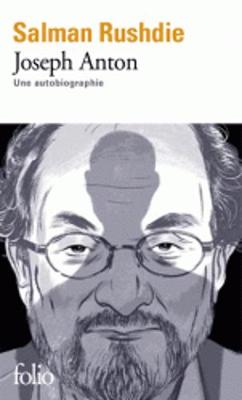
On 14 February 1989, Valentine's Day, Salman Rushdie was telephoned by a BBC journalist and told that he had been 'sentenced to death' by the Ayatollah Khomeini. For the first time he heard the word fatwa. His crime? To have written a novel called The Satanic Verses, which was accused of being 'against Islam, the Prophet and the Quran'. So begins the extraordinary story of how a writer was forced underground, moving from house to house, with the constant presence of an armed police protection team. He was asked to choose an alias that the police could call him by. He thought of writers he loved and combinations of their names; then it came to him: Conrad and Chekhov - Joseph Anton. How do a writer and his family live with the threat of murder for over nine years? How does he go on working? How does he fall in and out of love? How does despair shape his thoughts and actions, how and why does he stumble, how does he learn to fight back? In this remarkable memoir Rushdie tells that story for the first time; the story of one of the crucial battles, in our time, for freedom of speech.
He talks about the sometimes grim, sometimes comic realities of living with armed policemen, and of the close bonds he formed with his protectors; of his struggle for support and understanding from governments, intelligence chiefs, publishers, journalists, and fellow writers; and of how he regained his freedom. It is a book of exceptional frankness and honesty, compelling, provocative, moving, and of vital importance. Because what happened to Salman Rushdie was the first act of a drama that is still unfolding somewhere in the world every day.
On February 14 1989, Salman Rushdie got a call asking how he felt about being sentenced to death. The call was from a journalist who told him that the Ayatollah Khomeini has put a fatwa on him. His novel The Satanic Verses was accused of being “against Islam, the Prophet, and the Quran.” This is a memoir of the 10 years he went into hiding and was under police protection because of this fatwa.
When they asked Rushdie to pick an alias the first thing he did was think of the writers he respected, in this case Joseph Conrad and Anton Chekhov. This is a memoir of complete honesty about the effect his novel The Satanic Verses had on his life. I found Rushdie to be very honest about the whole situation, from the bonds formed, the struggles, the fears and the idea of freedom of speech.
One thing that really stood out to me was the use of a third person narrator; a rarity in a memoir but it seemed to really work. It was like Salman Rushdie was telling a story of someone else. I’m not sure if Rushdie was trying to look at the situation from another perspective or if he felt like the situation changed who he was, but it really worked.
I remember The Satanic Verses and I know I had to research Islam to understand the book, but I never thought of it as a religious insult; I always viewed the book as one man’s struggle to make sense of his religion in a culture completely different. The importance of this book and its literary achievements really was out shadowed by the controversy. In Joseph Anton, Rushdie really does try to look at the entire situation in a unique way.
Salman Rushdie’s healing process is displayed on the page for everyone to see, but you can still see the bitterness and animosity in his narrative. This is what I found made this book so great; the author never held back and never tried to hide his emotions. It would have been a scary time of his life and I’m glad to understand what he went through a lot more than I expected.
This review originally appeared on my blog; http://literary-exploration.com/2013/02/08/book-review-joseph-anton/
Reading updates
-
Started reading
-
4 December, 2012:
Finished reading
-
4 December, 2012:
Reviewed
